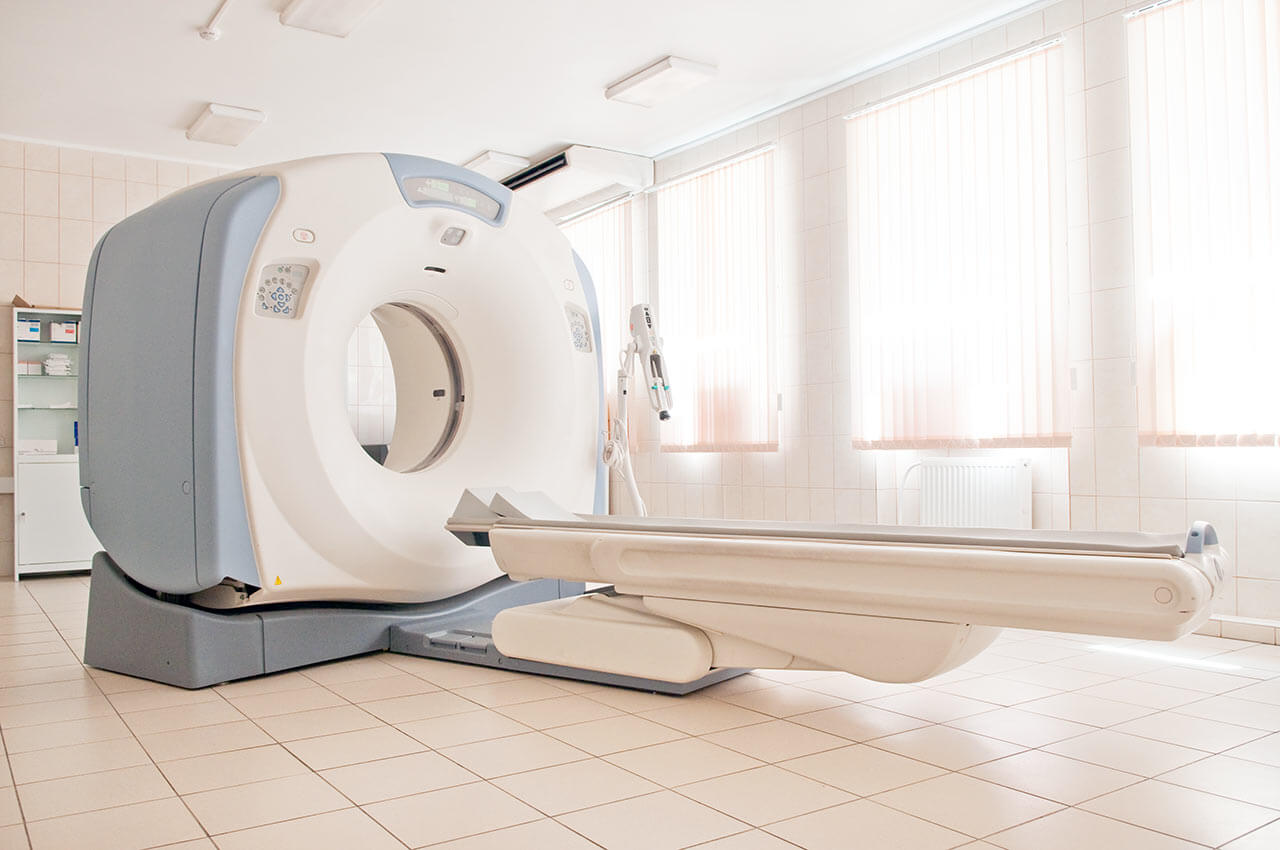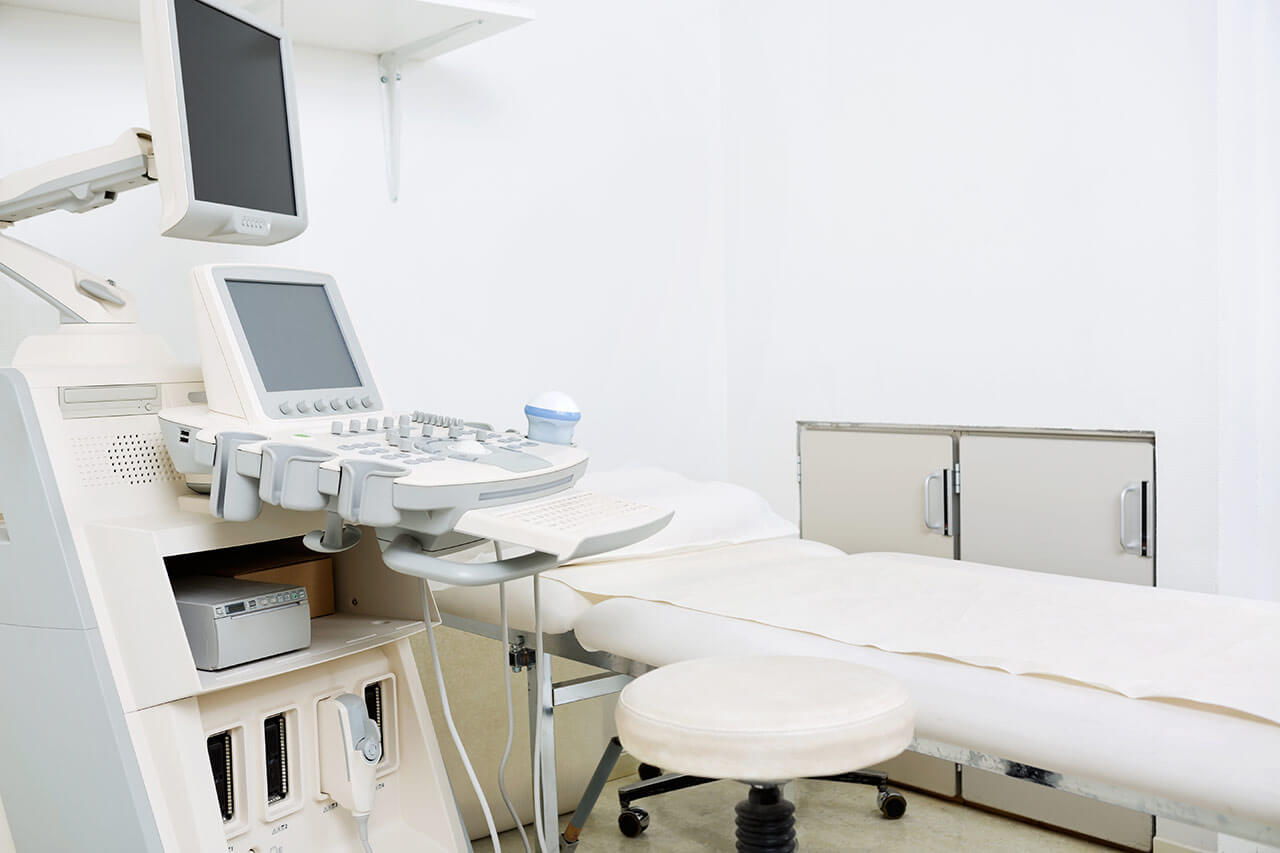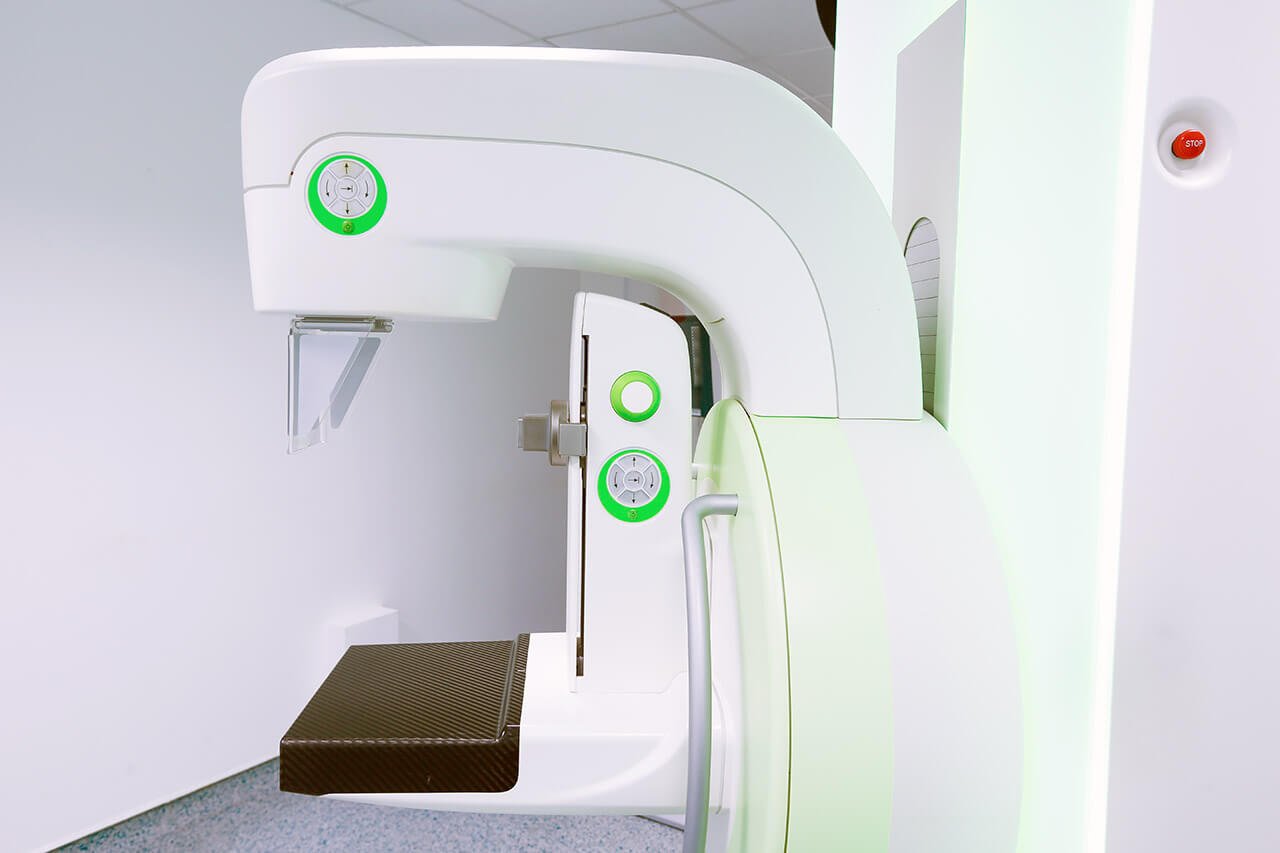
The program includes:
- Initial presentation in the clinic
- clinical history taking
- review of medical records
- physical examination
- laboratory tests:
- complete blood count
- biochemical blood test
- general urine analysis
- tumor markers
- inflammation markers (CRP, ESR)
- blood coagulation analysis (aPTT, PT, INR)
- ultrasound of the abdomen
- CT/MRI of chest and abdomen (if clinically indicated, additional cost is 650/1200€)
- gastroscopy with biopsy
- nursing services
- consultation of related specialists
- treatment by chief physician and all leading experts
- explanation of individual treatment plan
Required documents
- Medical records
- MRI/CT scan (not older than 3 months)
- Biopsy results (if available)
Service
You may also book:
 BookingHealth Price from:
BookingHealth Price from:
About the department
The Department of Diagnostics at the Conradia Radiology Center Munich offers the full range of modern examinations for the prevention and early detection of diseases of all organs and anatomical structures of the human body. Within the walls of the medical facility, the patients can undergo such examinations as magnetic resonance imaging, computed tomography, digital radiography, sonography and various diagnostic tests in the field of nuclear medicine. To conduct high-quality and high-precision diagnostics, the department's doctors use advanced technical equipment, which allows them to detect the slightest abnormalities in the human body. The patients receive medical care form the highly qualified team of specialists consisting of therapists, cardiologists, radiologists and experts in the field of nuclear medicine. The doctors have solid clinical training and long experience, thanks to which they provide their patients with effective diagnostics, reducing the risks of developing serious diseases or detecting them at the initial stages, which guarantees a successful cure of the disease. The department is headed by Prof. Dr. med. Lars Grenacher.
The department's medical team is convinced that the best way to maintain health and avoid the development of serious pathologies is to undergo regular comprehensive diagnostic examinations. Such diagnosis plays a special role in patients with a high risk of developing cancer, heart disease, gastrointestinal diseases and others. To provide patients with the maximum comfort, the department's specialists offer well-developed diagnostic "Check-up" programs. The department implements three programs: Premium Check-up, Premium Image Check-up and Premium Image Plus Check-up. In addition, the Check-up program for the patients who have suffered severe forms of coronavirus infection (COVID-19), which increases the risk of cardiovascular disease, cancer and other life-threatening pathologies, is becoming more demanded today. The screening after coronavirus infection enables the patient to receive information about health risks and, if necessary, to take the necessary steps to eliminate them. In addition, the patients who have suffered COVID-19 are offered online counseling. The Premium Check-up program is a general examination and serves for the assessment of individual disease risks. The Premium Image Check-up program involves imaging diagnostics, including whole body imaging using MRI or X-rays. With this set of diagnostic examinations, the doctors can detect many diseases of the brain, blood vessels, heart, lungs and abdominal organs at the initial stages or completely exclude the presence of these pathologies. The Premium Image Plus Check-up diagnostic package is used for detailed examinations in order to determine the nature of the patient's complaints, confirm or exclude a particular disease. It goes without saying that after obtaining the diagnostic results, the doctor holds an individual consultation for the patient, during which he presents the diagnostic data, gives recommendations, etc.
Of particular importance for the department's specialists is imaging diagnostics for the detection of oncological diseases, which affect a large number of people both in Germany and around the world. Should cancer be suspected, the focus will be on comprehensive diagnostics in order to make an accurate diagnosis, and if the doctor detects an oncological process, the next step is the determination of the type of tumor, its size and location. The diagnostic data allow the doctors to develop the most effective treatment regimen, after which the patient can recover or achieve long-term remission.
The imaging diagnostics of the heart is also one of the priority focuses of the department's clinical practice. The specialists of the medical facility perform cardiac CT, which is an excellent alternative to diagnostic cardiac catheterization. Unlike cardiac catheterization, cardiac CT is performed on an outpatient basis and does not require any invasive procedures. Computed tomography allows the doctors to exclude or confirm coronary artery stenosis with the highest accuracy. In addition, the CT scan can determine the degree of calcification of the coronary arteries. In the case of unsatisfactory indicators, the specialists will calculate the risk of developing myocardial infarction within the next 5 years. Thus, this method is excellent for determining the individual risk of developing cardiac pathology. Based on the results of the examination, the patient receives recommendations for drug therapy in order to prevent coronary heart disease and acute coronary syndrome.
The department often admits the patients with chronic back and joint pain who want to undergo the comprehensive diagnostic examination of the musculoskeletal system. In addition, orthopedic imaging is indicated for the patients with injuries, including sports injuries, and for the patients with rheumatic diseases. To examine such patients, the department's doctors use CT and MRI scans, as well as skeletal scintigraphy.
The department's range of diagnostic services includes:
- Magnetic resonance imaging (MRI) with and without contrast enhancement, including MRI using the Hitachi progressive open scanner for claustrophobic patients
- Computed tomography with and without contrast enhancement
- Digital radiography (most commonly used to examine the thorax, kidneys, ureters, bladder and skeletal bones)
- Ultrasound scanning (most commonly used to examine soft tissues of the neck, thyroid gland, internal organs and to diagnose cancer)
- Examinations in the field of nuclear medicine
- Scintigraphy for the detection of inflammations and neoplasms
- Brain scintigraphy (Datscan)
- Myocardial scintigraphy with SPECT
- Kidney scintigraphy
- Bone scintigraphy
- Thyroid scintigraphy
- Combined method of positron emission tomography and computed tomography PET-CT
- Other diagnostic tests
Curriculum vitae
Higher Education and Professional Career
- Study of Human Medicine at Heidelberg University.
- Clinical training for board certification at the University Hospital Heidelberg.
- 2001 - 2009 Senior Physician at the University Hospital Heidelberg.
- 02.2006 Habilitation, Heidelberg University.
- 2006 - 2015 Head of the Section for Gastrointestinal Imaging, University Hospital Heidelberg.
- 2008 Extraordinary Professor at Heidelberg University.
- 2009 - 2015 Deputy Head of the Department and Senior Physician with management responsibilities of the Department of Diagnostic and Interventional Radiology at the University Hospital Heidelberg.
- Since 2015 Head of the Department of Diagnostic at the Conradia Radiology Center Munich.
Clinical Interests
- Imaging diagnostics of cancers.
- Imaging diagnostics of gastrointestinal diseases.
- Imaging diagnostics of cardiovascular diseases.
- Imaging diagnostics of prostate diseases.
- Interventional radiology.
Memberships in Professional Societies
- Cardiovascular and Interventional Radiological Society of Europe (CIRSE).
- European Society of Gastrointestinal and Abdominal Radiology (ESGAR).
- Bavarian State Medical Association.
- Working Group on Abdominal Radiology of the German Radiological Society.
Photo of the doctor: (c) Conradia Radiologie München
About hospital
The Conradia Radiology Center Munich is a modern diagnostic clinic focused on providing high-quality services in the field of preventive medicine using high-tech latest generation equipment. The main task of the specialists working in the medical facility is to carry out imaging tests of all organs and anatomical structures of the body for the prevention, early detection and diagnostics of diseases. The clinic was opened in 2002 according to the concept of the American Diagnostic Center Mayo. It became the first medical center of this kind not only in Germany, but throughout Europe.
The center has at its disposal an excellent medical and technical base, as well as highly qualified specialists who provide patients with high-precision diagnostics of the European level. The diagnostic center offers such devices as Siemens Aera 1.5T MRI Scanner, Siemens Skyra 3T MRI Scanner, Philips Ingenia 3T MRI and Philips Ingenia 1.5T. In addition, since September 2019, the center has been using 1.2T Hitachi open MRI system, which allows the doctors to examine claustrophobic patients. THe patients in the health facility can also undergo such diagnostic tests as computed tomography, digital radiography and sonography. The advanced gamma cameras allow the doctors of the center to carry out all modern examinations in the field of nuclear medicine, including scintigraphy of the heart, brain, kidneys, skeletal bones, thyroid gland, etc. The ultramodern technical equipment of the center excludes the use of high doses of radiation exposure, which can harm human health.
The medical team of the Conradia Radiology Center Munich cares not only about the health of the patients, but also about their comfort, and therefore internists, cardiologists, radiologists and nuclear medicine specialists have cooperatively developed comprehensive preventive Check-up programs, which can be adapted to the individual needs of each patient. The medical facility offers three types of preventive programs – Premium Check-up, Premium Image Check-up and Premium Image Plus Check-up. Each program includes a particular set of diagnostic tests, which can be extended, if necessary. The comprehensive diagnostic programs allow the specialists to assess the state of human health, the risks of developing certain diseases, as well as detect pathologies at the initial stages. Such an approach significantly increases the patient's chances for full recovery.
The key attention in clinical practice is paid to the diagnostic examinations of the cardiovascular system, gastrointestinal organs, musculoskeletal system, nervous system, as well as gynecological and urological diagnostics, early detection of malignant tumors of various localization. The goal of the medical team is to regularly monitor human health indicators to prevent the development of serious diseases.
Photo: (с) depositphotos
Accommodation in hospital
Hotel
During an outpatient program, the patient can stay at the hotel of his choice. Our managers will help you choose the most suitable option.





